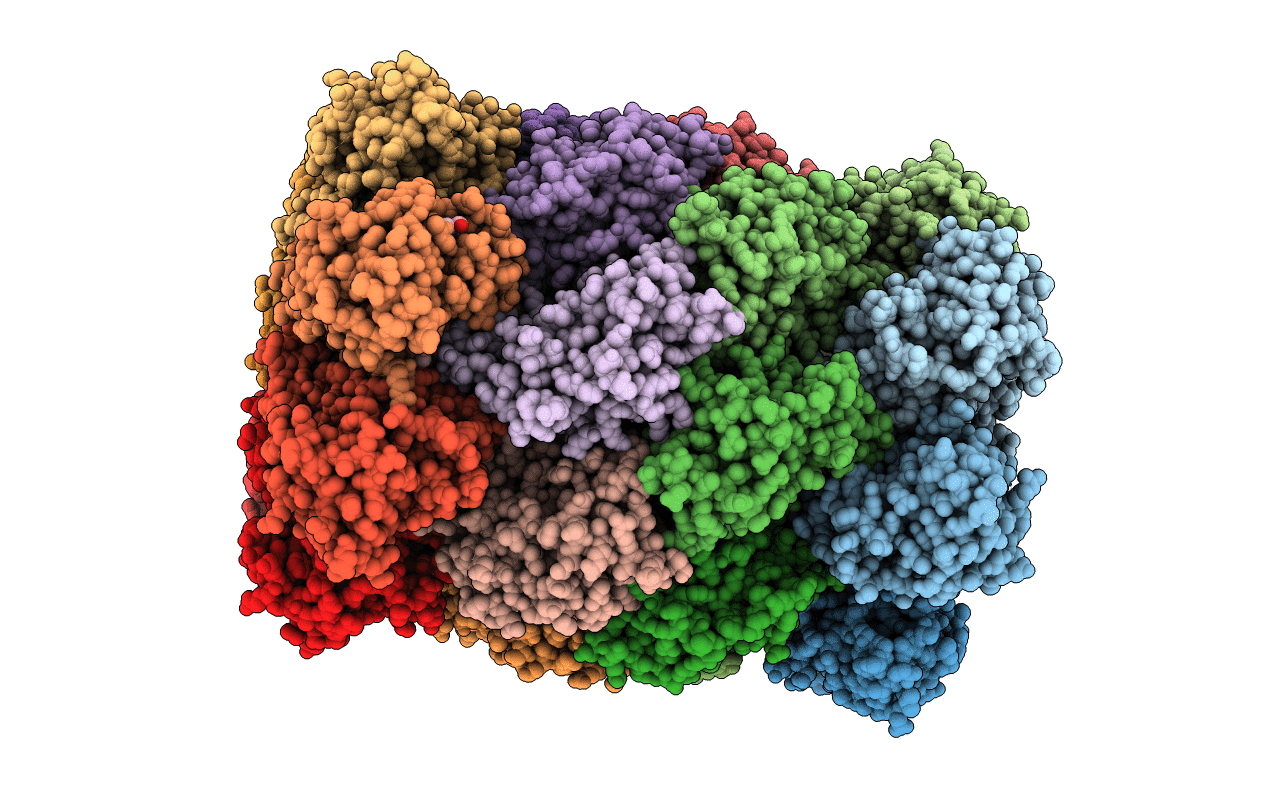
Deposition Date
2020-04-22
Release Date
2021-04-28
Last Version Date
2023-10-18
Entry Detail
PDB ID:
6WNK
Keywords:
Title:
Macrocyclic peptides TDI5575 that selectively inhibit the Mycobacterium tuberculosis proteasome
Biological Source:
Source Organism(s):
Mycobacterium tuberculosis (Taxon ID: 1773)
Expression System(s):
Method Details:
Experimental Method:
Resolution:
2.28 Å
R-Value Free:
0.23
R-Value Work:
0.19
R-Value Observed:
0.20
Space Group:
P 1 21 1


